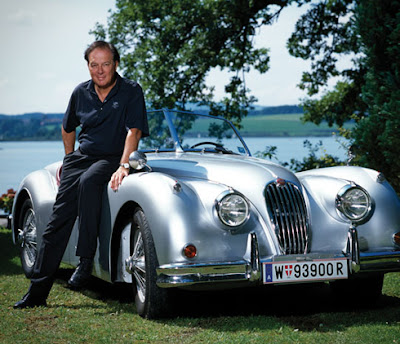There is so much to write about Handel's Giulio Cesare simulcast from the Metropolitan Opera. Let's start with this head which appears broken in the production. We're clear that this is Pompey the Great, right? Not Julius Caesar who looked more like this.

Everyone calls the production Bollywood, a genre I'm not particularly familiar with.
This opera staging has nothing to do with Rome and everything to do with the British Empire in Egypt. It is much easier to distinguish the two ethnic groups, Europeans and Egyptians, than other productions of the opera I've seen. When the Egyptians woo Cornelia (Patricia Barton), she is convincingly repulsed by them. The British appear often in their red and khaki uniforms. Julius Caesar wears a long, calf length coat. The Egyptian serving men wear the fez, a red cap that does not fall off when they bow. Ptolemy and Cleopatra are constantly changing their clothing throughout the opera. Renée Fleming even interviewed the dressers.
Conductor: Harry Bicket
Production: David McVicar
Giulio Cesare (Julius Caesar): David Daniels
Cleopatra: Natalie Dessay
Cornelia: Patricia Bardon
Sesto (Sextus): Alice Coote
Tolomeo (Ptolemy): Christophe Dumaux
Natalie Dessay is a fine dancer as well as a wonderful singing actress. I may have imagined it, but didn't she leave out "
#ad
This opera staging has nothing to do with Rome and everything to do with the British Empire in Egypt. It is much easier to distinguish the two ethnic groups, Europeans and Egyptians, than other productions of the opera I've seen. When the Egyptians woo Cornelia (Patricia Barton), she is convincingly repulsed by them. The British appear often in their red and khaki uniforms. Julius Caesar wears a long, calf length coat. The Egyptian serving men wear the fez, a red cap that does not fall off when they bow. Ptolemy and Cleopatra are constantly changing their clothing throughout the opera. Renée Fleming even interviewed the dressers.
Conductor: Harry Bicket
Production: David McVicar
Giulio Cesare (Julius Caesar): David Daniels
Cleopatra: Natalie Dessay
Cornelia: Patricia Bardon
Sesto (Sextus): Alice Coote
Tolomeo (Ptolemy): Christophe Dumaux
Natalie Dessay is a fine dancer as well as a wonderful singing actress. I may have imagined it, but didn't she leave out "
#ad





















